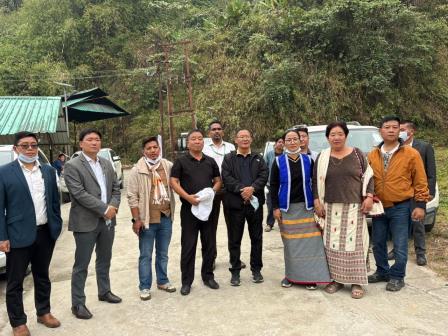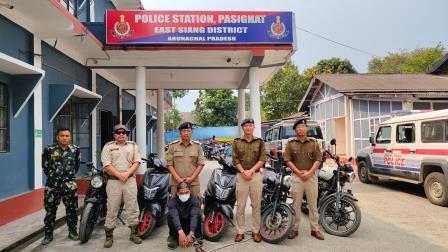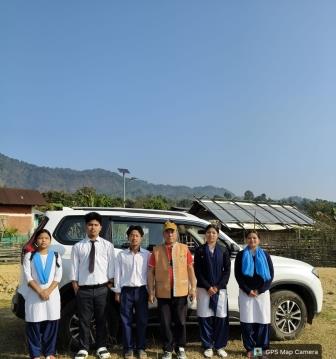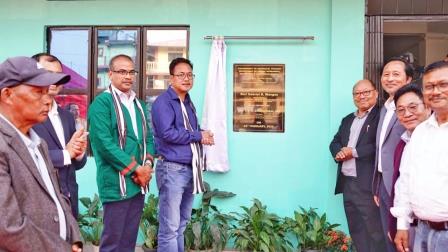-
Woman loses life in massive fire, two children seriously injured
-
 UA Minister inspects burial ground, focuses on maintenance and improvement
UA Minister inspects burial ground, focuses on maintenance and improvement
-
 UA Minister inspects burial ground, focuses on maintenance and improvement
UA Minister inspects burial ground, focuses on maintenance and improvement
-
 Indian Army & ITBP conduct integrated live fire exercise
Indian Army & ITBP conduct integrated live fire exercise
-
Itanagar to host ‘Just Music’ with Spotify India, indie stars…
-
 Pasighat Police recovers stolen two-wheelers, accused arrested
Pasighat Police recovers stolen two-wheelers, accused arrested
-
Natung inspects ongoing dev projects, infra
-
 A journey beyond duty: The inspiring story of Bomto Bole
A journey beyond duty: The inspiring story of Bomto Bole
-
Tension mount as woman’s health deteriorate during hunger strike at…
-
 Wangsu inaugurates central vaccine depot and disease investigation lab
Wangsu inaugurates central vaccine depot and disease investigation lab
The world that we live in today seems to be a completely different one than it was till two decades back. Technology has ensured that citizens are living in greater comfort than one could have ever imagined possible. However, as we go about our daily lives, scant thought seems to be directed towards our public spaces.
Barrier-free spaces must be the norm but our infrastructure is poorly designed without much thought for people living with disabilities, pregnant women and the elderly. Majority of government facilities lack vision to make these facilities “inclusive”. A good example is the Naharlagun Railway Station and its destination, the Guwahati Railway Station. Railway has revolutionised connectivity in Arunachal Pradesh, however, the station lacks the design which makes it difficult for all to easily access, which is such a shame. For people with mobility issues, the foot overbridge, one needs to cross is unthinkable. Not a single escalator, no ramps. The same is the plight of Northeast India’s biggest railway station in Guwahati.
Barrier-free spaces is not a big ask and ought to be implemented in every public utility, for it to be accessible by all citizens.
The International Day of Persons with Disabilities is celebrated every year, to promote the rights and well-being of people with disabilities at every level of society and development. Additionally, it also aims to raise awareness of the situations of persons with disabilities in all aspects of political, social, economic and cultural life.
People living with disabilities often find themselves at the fringes of mainstream society because of a lack of participative inclusion in social and economic fields. This has resulted in a dependency syndrome which the differently abled aren’t able to shrug off readily. Celebrations must not only be symbolic but there is a need for people to remind themselves constantly so that behavioural changes lead to a more differently abled inclusive society. Including people with disabilities in the social fold and ensuring their economic sustainability is crucial for their empowerment.

Kenter Joya Riba
(Managing Editor)She is a graduate in Science with post graduation in Sociology from University of Pune. She has been in the media industry for nearly a decade. Before turning to print business, she has been associated with radio and television.
Email: kenterjoyaz@easternsentinel.in / editoreasternsentinel@gmail.com
Phone: 0360-2212313

